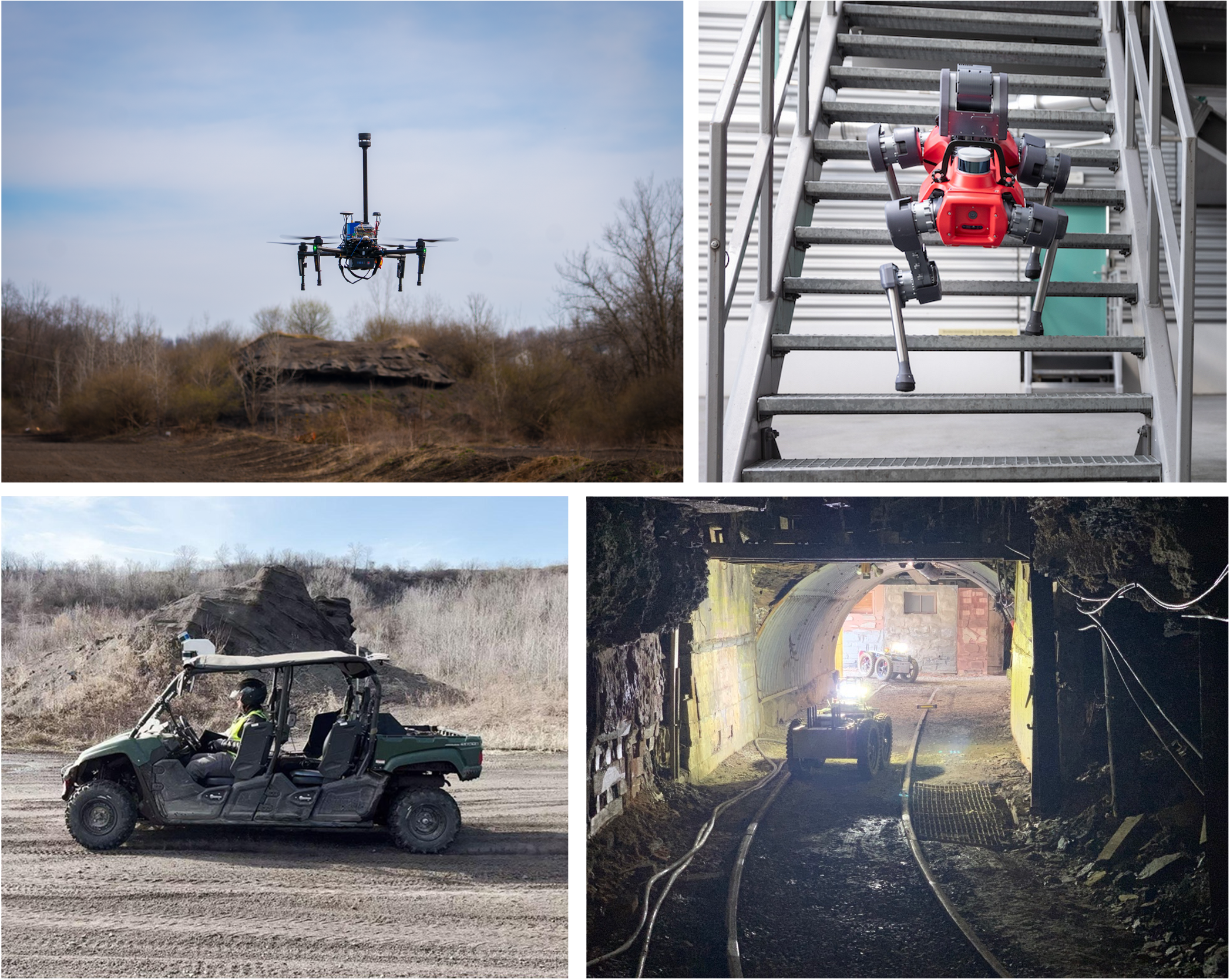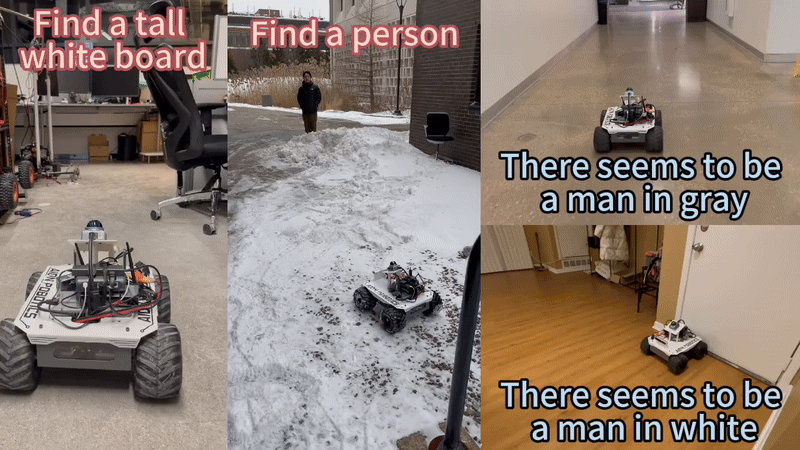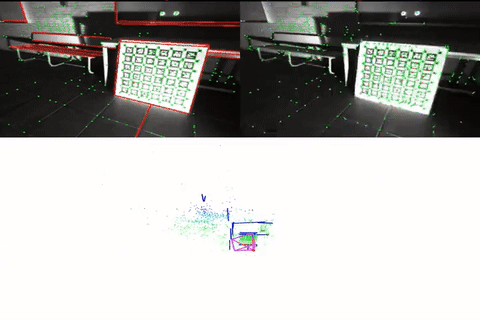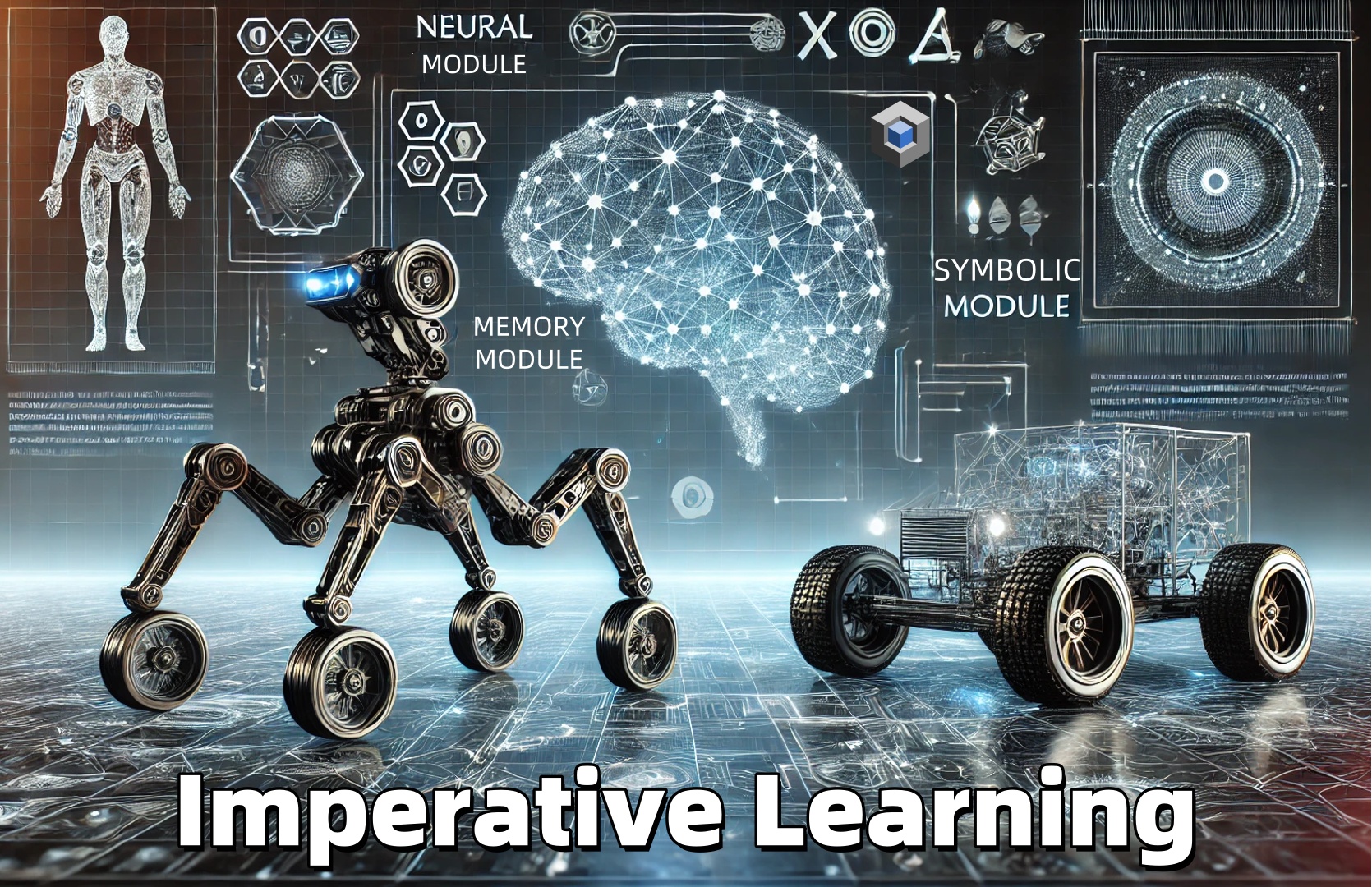About Us
We are proud to be part of the Computer Science and Engineering (CSE), University at Buffalo (UB).
At the intersection of perception, spatial reasoning, and decision-making, we are committed to advancing mobile robots toward human-level autonomy by developing algorithms and systems that can efficiently and robustly:
- Perceive and interpret various sensory inputs such as images, point clouds, and proprioceptive data.
- Integrate neural and symbolic memory representations to capture spatial common sense and semantic knowledge.
- Reason, plan, and act in real time to navigate, interact, and adapt within unstructured and dynamic environments.
A central paradigm we advocate is imperative learning (IL), a unified Neuro-Symbolic learning framework for robot autonomy, that advances data-efficient learning through structured reasoning. IL is inherently self-supervised, modular, and end-to-end learnable with symbolic reasoning grounded in physical laws and logical rules.
We are also leading the development of PyPose, an open-source library for differentiable robotics on manifolds. Notably, PyPose has accumulated over 160,000 downloads in 2025, according to PyPi Stats.





